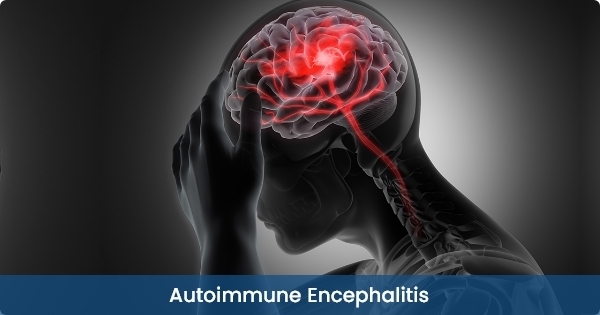Schizophrenia is a mental illness that has abnormal effects on a person’s thinking, emotional health and behaviour. This disease comes in the depressive group of diseases in which the person feels loss of harmony and anonymity of personality. It is usually diagnosed when there is a disturbance in a person’s thinking and behaviour.
Schizophrenia is diagnosed based on a person’s specific circumstances, symptoms, and medical history. Diagnosis may also include preliminary information and initial testing by the patient’s family, friends, or related persons.
In this article, we will discuss in detail how schizophrenia is diagnosed.
Contents
Diagnosis of Schizophrenia
1. History and Interests
The diagnosis of schizophrenia is based on the medical and psychiatric history of the patient. The doctor asks the patient about his behaviour, emotional state, thinking ability, and other concerns. Information about these things is also obtained from the patient’s family and friends. In addition, the patient’s interests, lifestyle, and social environment are also evaluated.
2. Evaluation of symptoms
In the diagnosis of schizophrenia, the symptoms shown by the patient are evaluated. These symptoms may include abnormality in conversation, ambiguity in thoughts, unknown thought options, etc. Doctors examine them with personal and mental changes.
3. Physical Examination
A physical examination may also be done during the diagnosis of schizophrenia. This may include blood and urine tests, enzyme tests, etc. This test can help rule out diseases that may be related to the symptoms of schizophrenia.
4. Mental Health Checkup
Mental health examination is also extremely important in diagnosing schizophrenia. This test helps in measuring the mental state, thinking power, emotional state and mental balance of the patient. Changes in the patient’s thoughts, feelings, and behaviour are evaluated.
5. Other tests
In some cases, other tests may also be needed to diagnose schizophrenia. These tests help differentiate the symptoms of schizophrenia from other illnesses or mental health problems.
Diagnosing schizophrenia is a therapeutic process in which several aspects are mediated in order to accurately evaluate the patient’s condition. The diagnosis is based on the patient’s symptoms and signs that affect their behaviour, thinking, and emotional state.
Steps of diagnosis
Prior testing and history
The initial step in diagnosing schizophrenia is to evaluate the patient’s personal and family history. The doctor asks the patient about his behaviour, emotional state, thinking ability, and other concerns. In addition, special circumstances of the patient being served are also evaluated such as alcohol or drug abuse, past medical history, and information regarding the mental health of the family.
Evaluation of symptoms
In the diagnosis of schizophrenia, the symptoms displayed by the patient are evaluated. These symptoms may include slurred speech, unclear thoughts, unfamiliarity with thought options, difficulty hearing voices, and unusual changes in behaviour. Doctors help in understanding the patient’s condition on the basis of these symptoms.
Physical examination
Physical examination is also done during the diagnosis of schizophrenia. This may include blood and urine tests, enzyme tests, and other physical examinations. This test can help rule out other physical problems that may be related to schizophrenia symptoms.
Mental Health Screening
Mental health examination also plays an important role in the diagnosis of schizophrenia. In this, it is helped in measuring the mental state, thinking power, emotional state and mental balance of the patient. The doctor listens to the patient’s thoughts, feelings, and behaviour. They evaluate the changes.
Check others
In some cases, other tests may also be done to diagnose schizophrenia. This may include imaging tests (MRI, CT scan) and consultation with other mental health experts. These tests help differentiate the symptoms of schizophrenia from other illnesses or mental health problems.
Importance of Correct Diagnosis
Correct diagnosis of schizophrenia is important for proper treatment. Correct diagnosis allows the patient to receive appropriate medications and systems that can improve their condition and provide them with support. It is also proven that correct diagnosis can improve the patient’s quality of life and help them socially and personally.
The diagnosis of schizophrenia requires a holistic approach from a personal and professional aspect. The doctor’s experience, expertise and understanding play a very important role in understanding the patient’s problem. Subsequently, providing appropriate treatment and support can improve the patient’s life and help them understand their condition materially.
CONCLUSION:
Schizophrenia must be diagnosed by a professional physician who can properly evaluate the patient’s symptoms and circumstances. A properly diagnosed patient can benefit from good treatment and support.
Diagnosing schizophrenia is an important process that helps pave the way for the right treatment and support for the patient. It also plays an important role in determining the severity and time course of the disease. The process of diagnosing schizophrenia consists of some important steps that help in understanding the patient’s problem and obtaining the necessary information for its treatment.
The diagnosis of schizophrenia involves an evaluation of the patient’s personal and family history. It is important to know if anyone else in the patient’s family has schizophrenia or is experiencing any other mental health problem. The patient’s personal history previews important life events, school or work-related problems, and personal experiences. It is also important to know if any drugs or medications are being consumed in excess that may impact mental health.
The second step is to evaluate the symptoms. In this, the symptoms shown by the patient and their effects are evaluated. Symptoms of schizophrenia may include speech abnormalities, unclear thoughts, inability to hear speech, and changes in behaviour. These symptoms help the doctor to understand the patient’s condition.
The third step is physical examination. In this, the physical health of the patient is examined such as blood and urine tests, enzyme tests etc. This test can help rule out other physical problems that may be related to schizophrenia symptoms.
The fourth step is mental health checkup. This test helps in measuring the mental state, thinking power, emotional state and mental balance of the patient; changes in the patient’s thoughts, feelings, and behaviour are evaluated.
After all these steps, the doctor may order further tests such as imaging tests (MRI, CT scan) or consult other mental health experts.
It is very important to get the diagnosis of schizophrenia correct and accurate so that the patient can receive the right treatment and support. Next, the doctor evaluates the patient’s condition and formulates an appropriate treatment plan, which may include the use of medications, counselling, and medical support.
Thus, the process of diagnosing schizophrenia is extremely important to ensure access to the right and timely treatment for the patient. Timely diagnosis and proper treatment of this disease can improve the patient’s condition and he can live a healthy and prosperous life.





